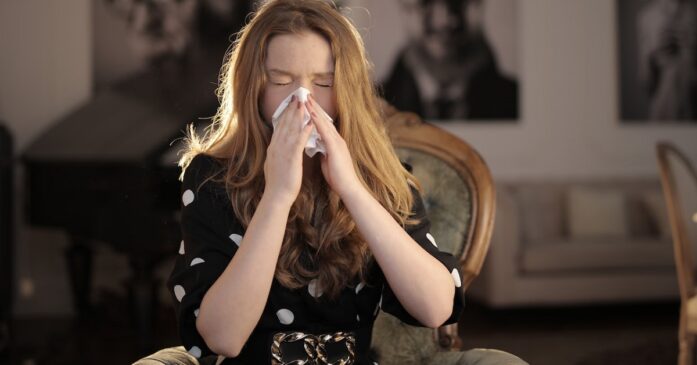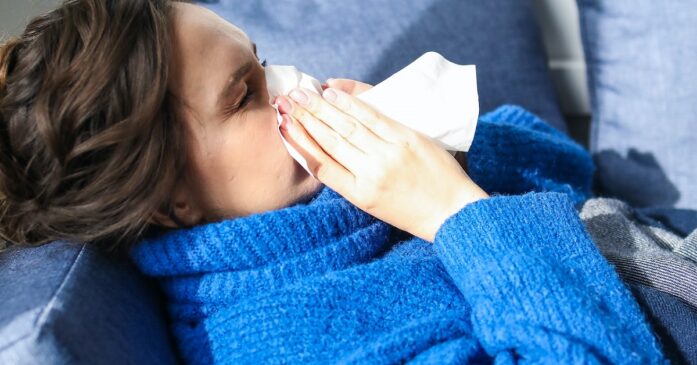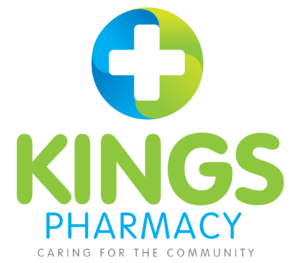King's Pharmacy
How Do You effectively Treat Hay Fever?

Hay fever, sometimes referred to as allergic rhinitis, is a common condition brought on by an overreaction of the body to airborne allergens such as pollen, dust, pet hair, or mould spores. Allergy month typically spans from mid-March to May, and potentially up to September. During this time, many people suffer from allergies triggered by tree pollen. Tree pollen is one of the most common allergens and can cause symptoms like sneezing, runny nose, and itchy eyes.
It’s important to take steps to manage allergies during this time, such as staying indoors on high pollen days, wearing a mask when outdoors, and taking allergy medications as directed by a healthcare provider. With proper management, people can still enjoy spring and summer despite seasonal allergies. Keep reading to find out what the most effective hay fever treatments are.
Your immune system releases histamine and other chemicals when you are exposed to these allergens. This causes a variety of symptoms, such as:
– Itchy nose, eyes, and throat
– Headaches
– Runny or stuffy nose
– Fatigue
– Sneezing
– Watery eyes
What are the main causes of hay fever?
Some common triggers of hay fever include:
1. Pet dander – If you’re allergic to animal dander, being around cats, dogs, or other animals can trigger hay fever symptoms.
2. Air pollution – Exposure to pollutants such as car exhaust, cigarette smoke, and industrial chemicals can irritate the nose and trigger hay fever symptoms.
3. Pollen – This is one of the most common triggers of hay fever, and it can come from a variety of sources, including trees, grasses, and weeds.
4. Food allergies – In some cases, certain foods can trigger hay fever symptoms, especially if you’re already allergic to the food in question.
5. Dust mites – Dust mites are tiny creatures that live in dust and are found in bedding, carpets, and upholstered furniture.
6. Mould spores – These can be found in damp areas such as basements, bathrooms, and kitchens.

How to avoid exposure to pollen
There are numerous strategies to help lessen your exposure to pollen and reduce your symptoms. Here are a few helpful tips:
1. Stay indoors when pollen counts are high – Pollen counts tend to be highest during the spring and fall seasons.
2. Keep windows and doors closed – During the peak of pollen season, keep your windows and doors closed and use air conditioning.
3. Take a shower – Take a shower after being outside to remove any pollen that could have gathered on your skin and hair.
4. Keep pets clean – If you have pets, keep them clean, this will reduce the quantity of pollen they carry into your home.
5. Use air filters – Consider using air filters with a HEPA (high-efficiency particulate air) filter. This will reduce the amount of pollen in your home.
What’s the most effective hay fever treatment?
Natural remedies for hay fever treatment
There are a number of natural remedies that could alleviate hay fever symptoms. Here are some home treatments for hay fever:
Honey – Some people find that taking manuka honey can help relieve hay fever symptoms.
Probiotics – Probiotics, such as those found in yoghurt, may help boost the immune system and reduce inflammation.
Vitamin C – Vitamin C is a natural antihistamine and may help reduce hay fever symptoms.
Essential oils – Some essential oils, such as peppermint, eucalyptus, and lavender, may help relieve hay fever symptoms when used in a diffuser or applied topically.
There are also a number of over-the-counter and prescription medications that can help relieve these symptoms available at King’s Pharmacy.
Over-the-counter medications for hay fever
These medicines include antihistamines, nasal corticosteroids and decongestants. Stronger versions of the medicines mentioned above may be prescribed for hay fever. These medicines include leukotriene receptor antagonists (like Montelukast) and immunotherapy (like Kenalog injections).
Tips for managing symptoms while outdoors
Here are some tips for managing hay fever symptoms while outdoors:
– Wearing a mask can help prevent allergens from entering your nose and mouth.
– Use allergy medication to help alleviate hay fever symptoms.
– Consider allergy jabs (immunotherapy), to help reduce hay fever symptoms.
By using the tips above, those who suffer from hay fever can still enjoy being outside without experiencing any allergic symptoms. You may still take in the beauty of nature while avoiding hay fever’s agony by being proactive and treating symptoms.

Hay Fever Treatment in Birmingham at King’s Pharmacy
For more information about hay fever treatment, get in touch with King’s Pharmacy. You can also use the MedAdvisor app to connect with King’s Pharmacy to generate your repeat prescription electronically, and make clinic bookings online.
This blog post was written on behalf of King’s Pharmacy by Pharmacy Mentor.
